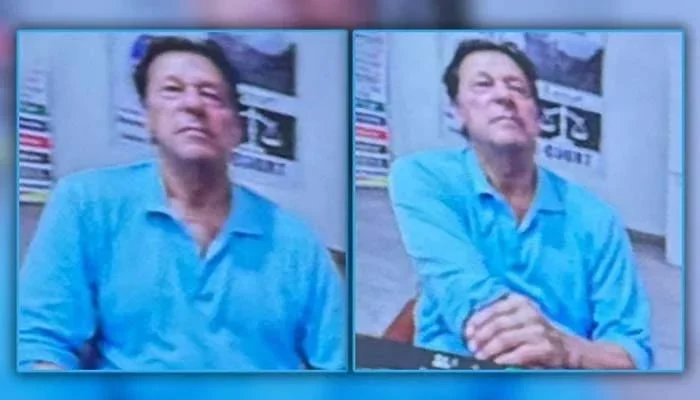Imran Khan
ISLAMABAD: During the hearing of the NAB amendments case in the Supreme Court, imprisoned Pakistan Tehreek-e-Insaf (PTI) founder, Imran Khan, voiced his grievances about the alleged victimization he has faced since being ousted from power in April 2022.
Speaking via video link from Adiala jail, where he has been incarcerated since his conviction in the Toshakhana case, Khan appeared before a five-member bench headed by Chief Justice Qazi Faez Isa.
Khan asserted that an unannounced “martial law” had been imposed in the country, contending that his conviction in the Toshakhana case was orchestrated to prevent him from participating in the general elections.
He cited the release of Delhi Chief Minister Arvind Kejriwal on bail ahead of Indian general elections as a comparative example.
Expressing disappointment over the Supreme Court’s rejection of Khyber Pakhtunkhwa’s plea for live streaming of the case, Khan questioned the rationale behind the decision, seeking clarification from Chief Justice Isa.
In response, the Chief Justice advised Khan to focus solely on the matter under consideration by the court and suggested filing a review petition if dissatisfied with the verdict.
Khan lamented his sentencing to 14 years in the Toshakhana case, disputing the prosecution’s valuation of a watch he received from a foreign dignitary during his tenure as prime minister.
He criticized what he perceived as political victimization and called for reforms within the National Accountability Bureau (NAB), urging the Supreme Court to appoint a NAB chairman.
Justice Minallah questioned Khan’s opposition to the NAB amendments in parliament, to which Khan attributed to the circumstances surrounding his government’s ouster and his refusal to engage with what he deemed a “conspiratorial government.”
Chief Justice Isa highlighted the inconsistency in Khan’s stance on accountability and amnesty during his tenure in power.
Overall, Khan’s appearance before the Supreme Court shed light on his perceptions of political victimization and the need for reform within the NAB, underscoring the ongoing legal and political challenges facing Pakistan’s governance.
I am a dynamic professional, specializing in Peace and Conflict Studies, Conflict Management and Resolution, and International Relations. My expertise is particularly focused on South Asian Conflicts and the intricacies of the Indian Ocean and Asia Pacific Politics. With my skills as a Content Writer, I serve as a bridge between academia and the public, translating complex global issues into accessible narratives. My passion for fostering understanding and cooperation on the national and international stage drives me to make meaningful contributions to peace and global discourse.










